44 Years Later, the Battle of the Sexes Returns to the Spotlight
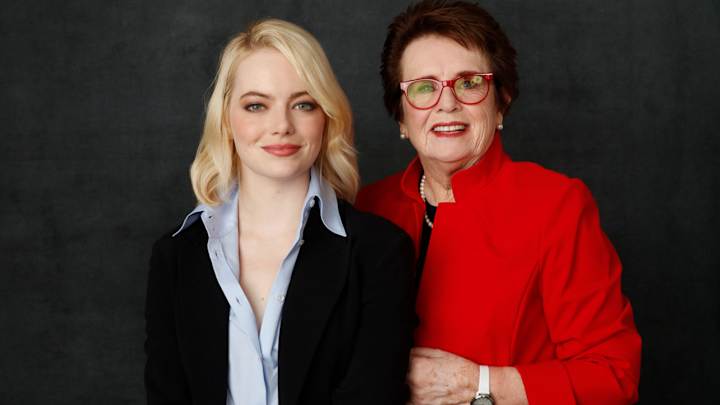
Billie Jean King didn't stick to sports. Mostly because she was never afforded that luxury. In the early 1970s, the entrenched tennis powers paid women dimes to the dollars they offered men. "They basically dared us to go off on our own," King says, "so we did." The breakaway tour that King effectively led—which eventually became the WTA—was as much an exercise in activism as it was an exercise in hitting a ball over a net.
A few years later, King grudgingly agreed to take on a 55-year-old trash-talking hustler (and former No. 1 ranked player) named Bobby Riggs in a $100,000 winner-take-all exhibition. What started as a publicity stunt became a worldwide referendum on gender. The match, on Sept. 20, 1973, was played before 30,000 fans in the Houston Astrodome and drew 90 million viewers worldwide—the most in the U.S. since 125 million people watched the moon landing in '69. King, of course, handily picked apart Riggs and, by extension, some tired cultural stereotypes.
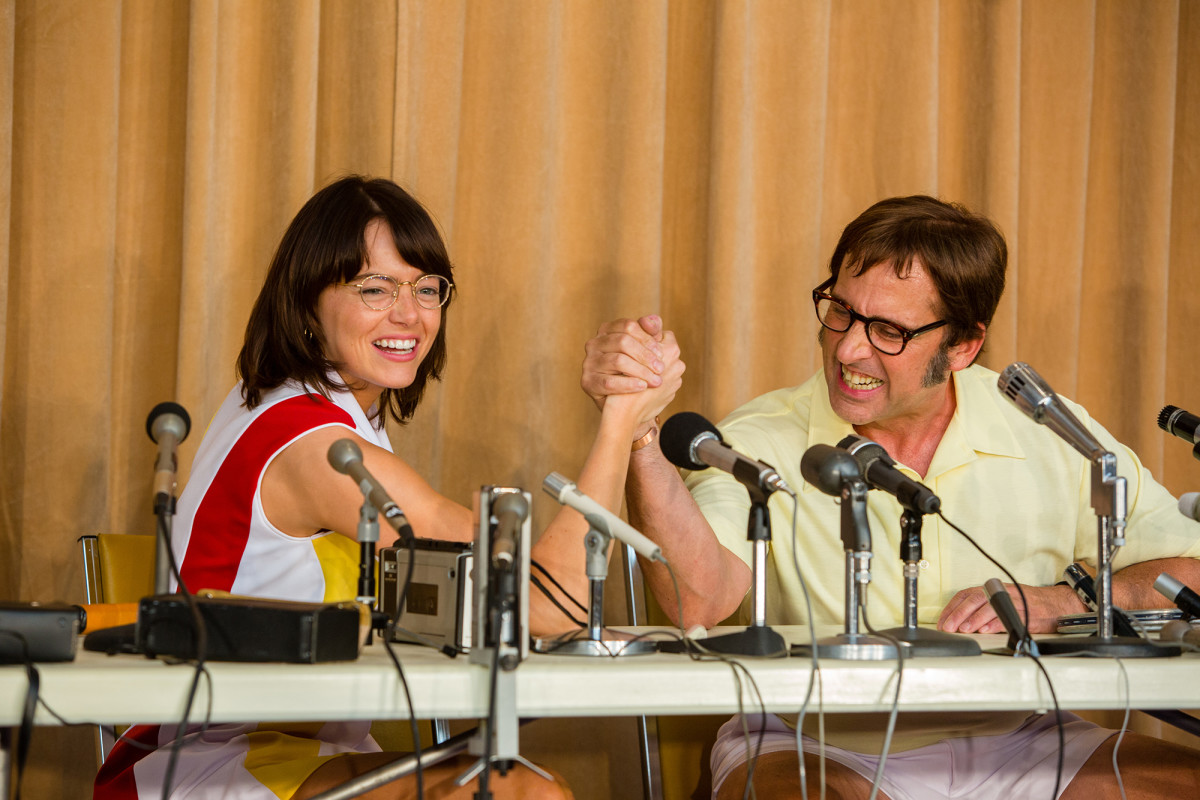
More than 40 years later, the Battle of the Sexes has inspired a feature film of the same name. In her first role since La La Land, Emma Stone, 28, portrays the 29-year-old King, nailing everything from her clipped diction to her manic ball bouncing. While Stone took lessons and packed on 12 pounds for the role, members of the UCLA tennis team served as stand-ins for some scenes. Steve Carell plays Riggs, a figure both repulsive and alluring. And, yes, the co-stars were paid equally for their work.
Hours before Sloane Stephens earned $3.7 million for winning the 2017 U.S. Open (the same as men's winner Rafael Nadal), Stone and King spoke with SI.
SI: I feel like you two are doing pr for women's tennis in 1973 and going from the local radio station now to ...
Billie Jean King: The car dealership.
SI: So, how did Emma do?
BJK: She did great, are you kidding? For all of us who have seen tennis movies, I think the bar has been pretty low. But I think they did a great job on the tennis, which I think is always one of the challenges.
SI: You saw yourself in her?
BJK: It was amazing. Her mannerisms, her voice. If I close my eyes, I would have thought it was me.
SI: What is this like for you, Emma? Billie is still a presence, someone you can consult. This isn't Kirsten Dunst playing Marie Antoinette. But then again you're playing her 44 years ago.
Emma Stone: The pressure is obviously immense because I wanted to live up to Billie Jean, which no one ever can. So I had to let myself off the hook for that. But just getting to know about her life and her story and what makes her her, it was just an honor.
Mailbag: The Case Against On-Court Coaching
SI: How did you do that?
ES: A lot of research. I talked to Billie Jean a little, but it was mostly watching footage, reading interviews, reading everything about her before the age of 29 so that I could create a capsule of this human being at that point in her life—without the perspective she obviously has now.
SI: In this movie the women are scratching, clawing for a $7,000 purse. You come out here in 2017, at a tennis center named in your honor, where the winner of the U.S. Open is going to win almost $4 million....
BJK: It really makes me happy. It makes all of us from my generation happy. That's the only thing I asked the directors: "Please put the Original Nine [the dissidents who formed the women's tour] in it."
Our dream was that any girl born in the world would have a place to compete and be appreciated for their accomplishments, not just their looks. If you listen to Howard Cosell, when I walked into the Astrodome, he talked about my looks.
Players today are living our dream.
SI: You mentioned that Howard Cosell talked about your looks.
BJK: That's all he talked about.
SI: I go to Emma's IMDB page. What does it say? Husky voice, red hair.
BJK: Always about our looks. If you look at traditional media, 95% is still controlled by men. We need to change that to reflect America. When we came in, there were no women on TV or in print. I was talking to men all the time. But my younger brother played professional baseball [Randy Moffitt, mainly with the Giants] and my dad's a jock, so it was easy for me. But I thought, Boy, if I was a tennis player who didn't grow up with men in my life, I think it would be a lot harder.
SI Vault: Battle of the Sexes
Billie Jean King and Bobby Riggs
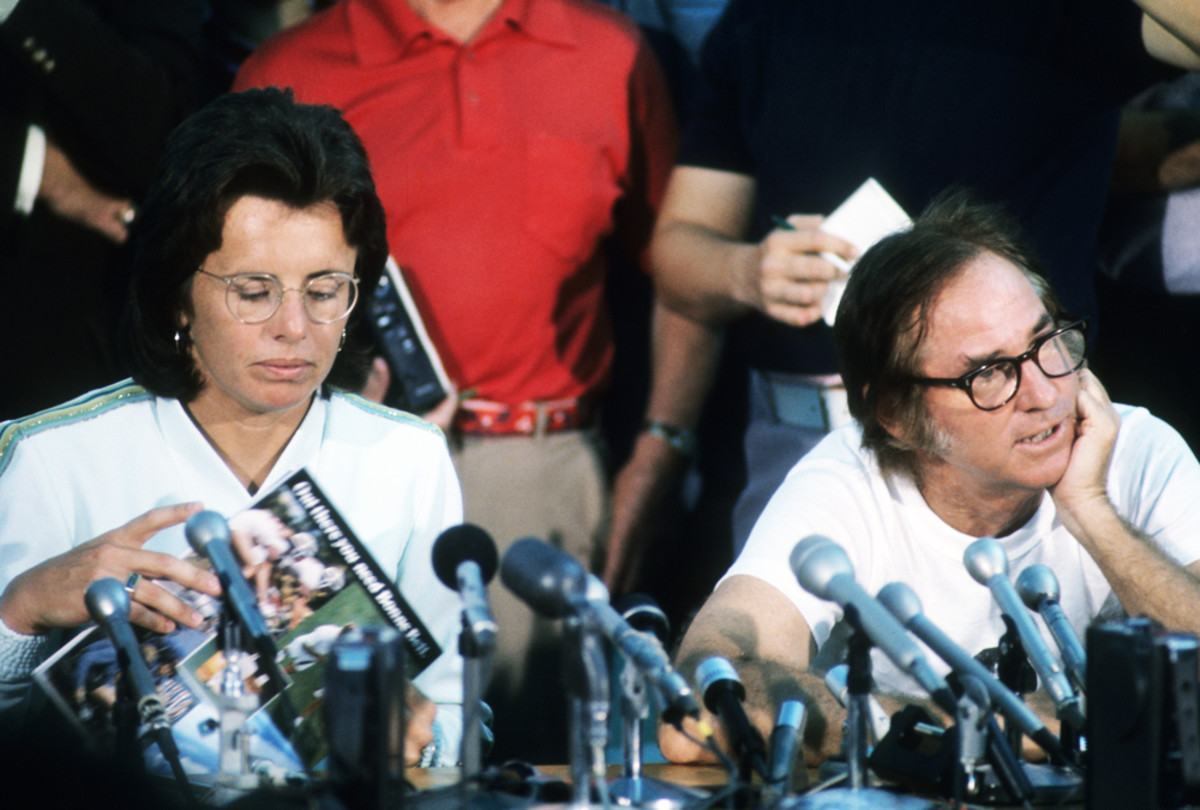
Billie Jean King and Bobby Riggs
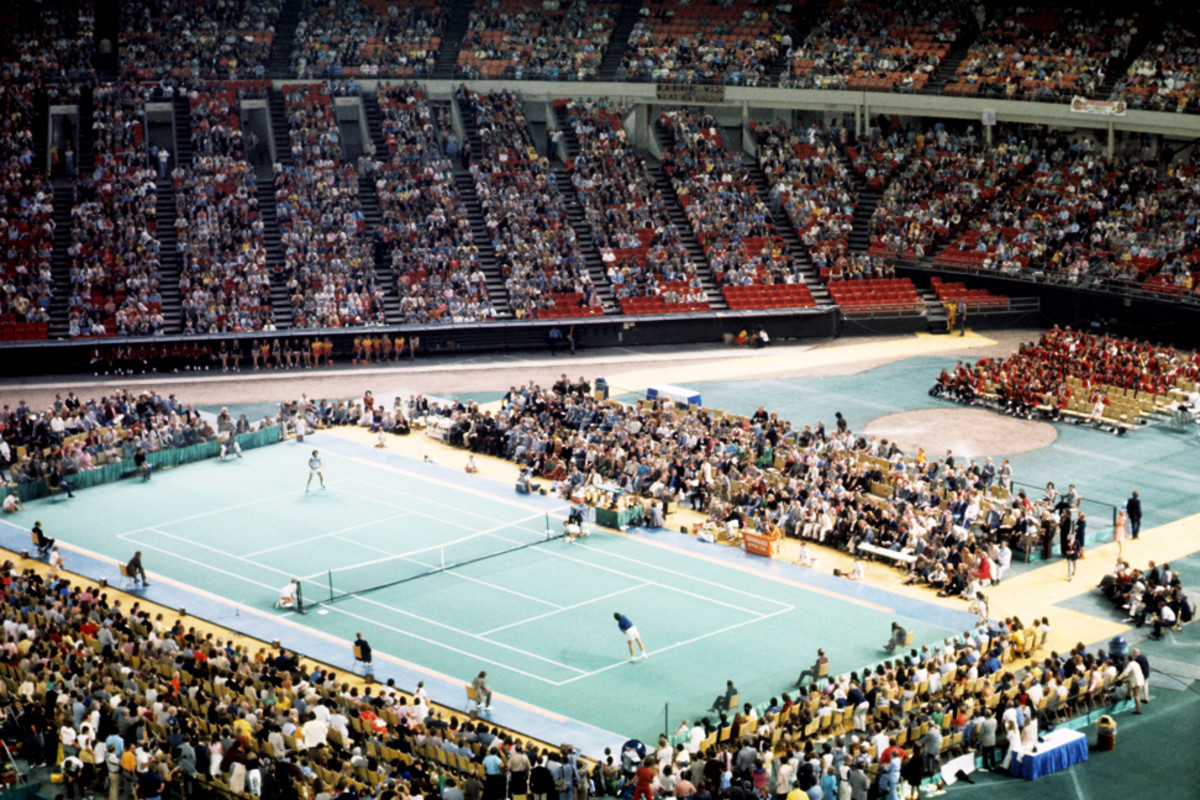
Billie Jean King
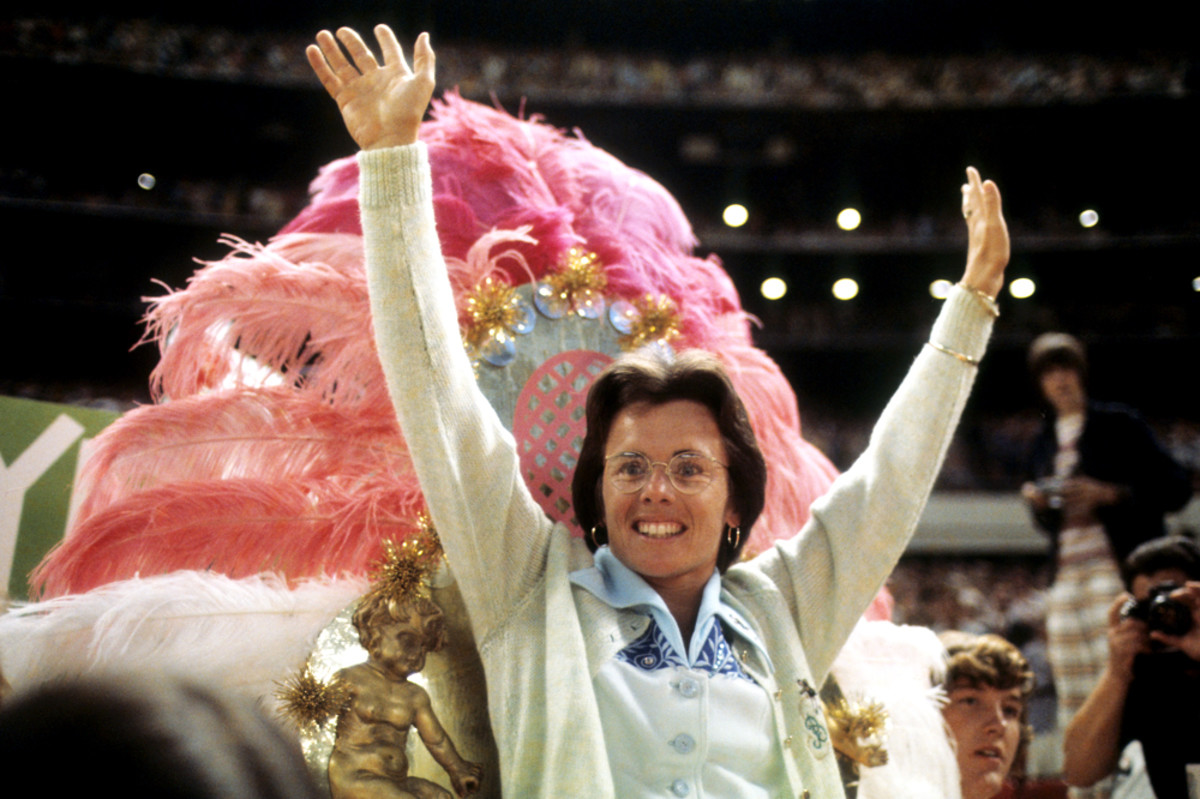
Bobby Riggs
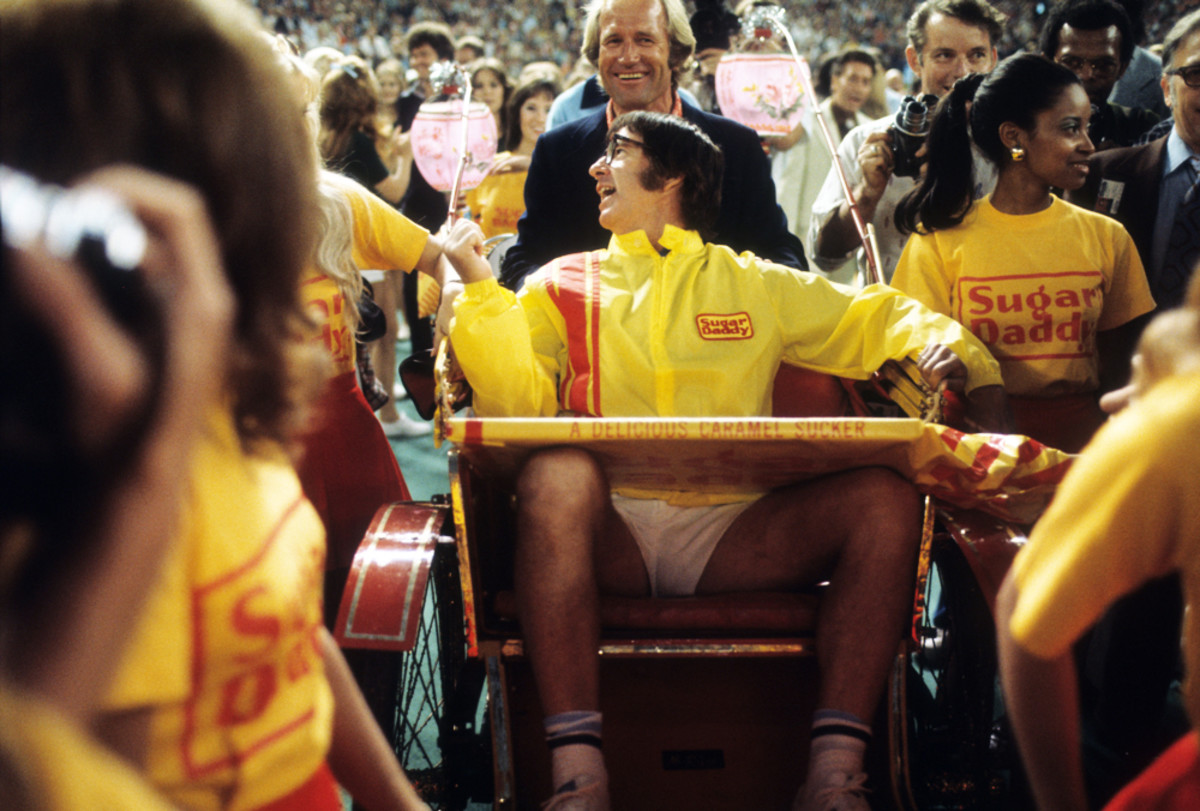
Scoreboard
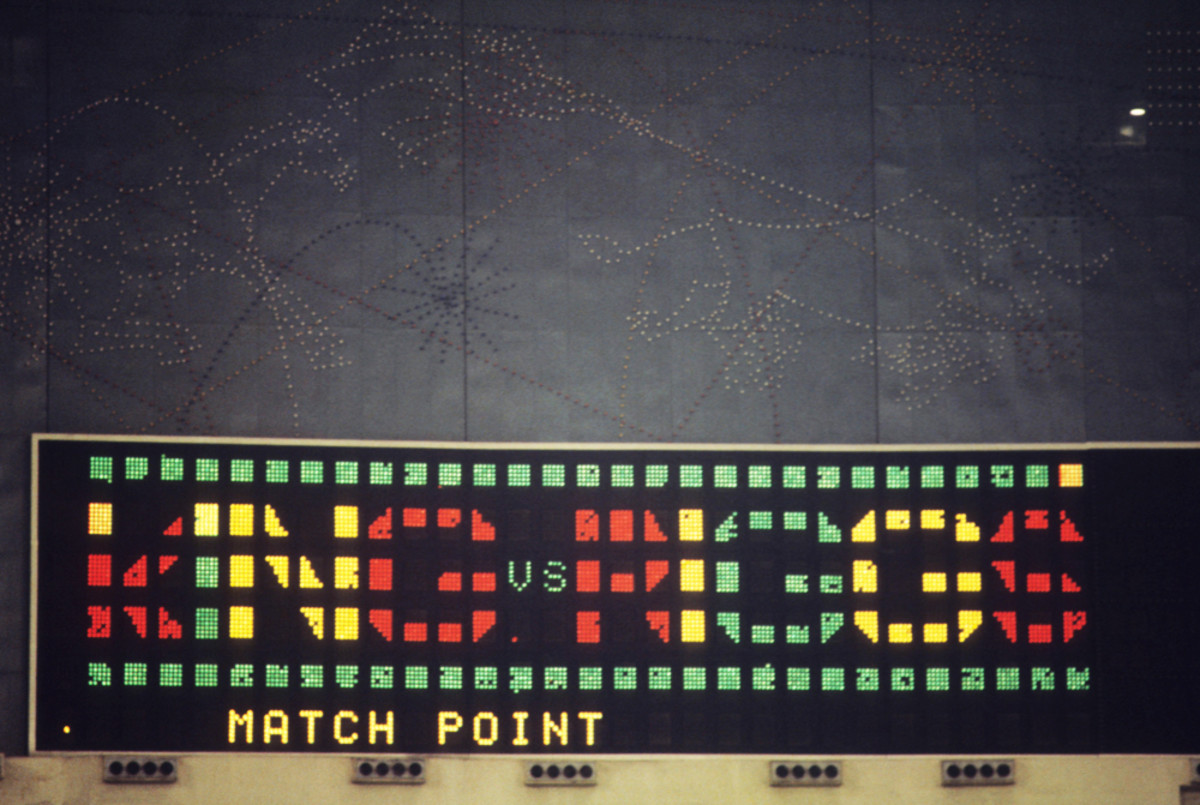
Billie Jean King and Bobby Riggs
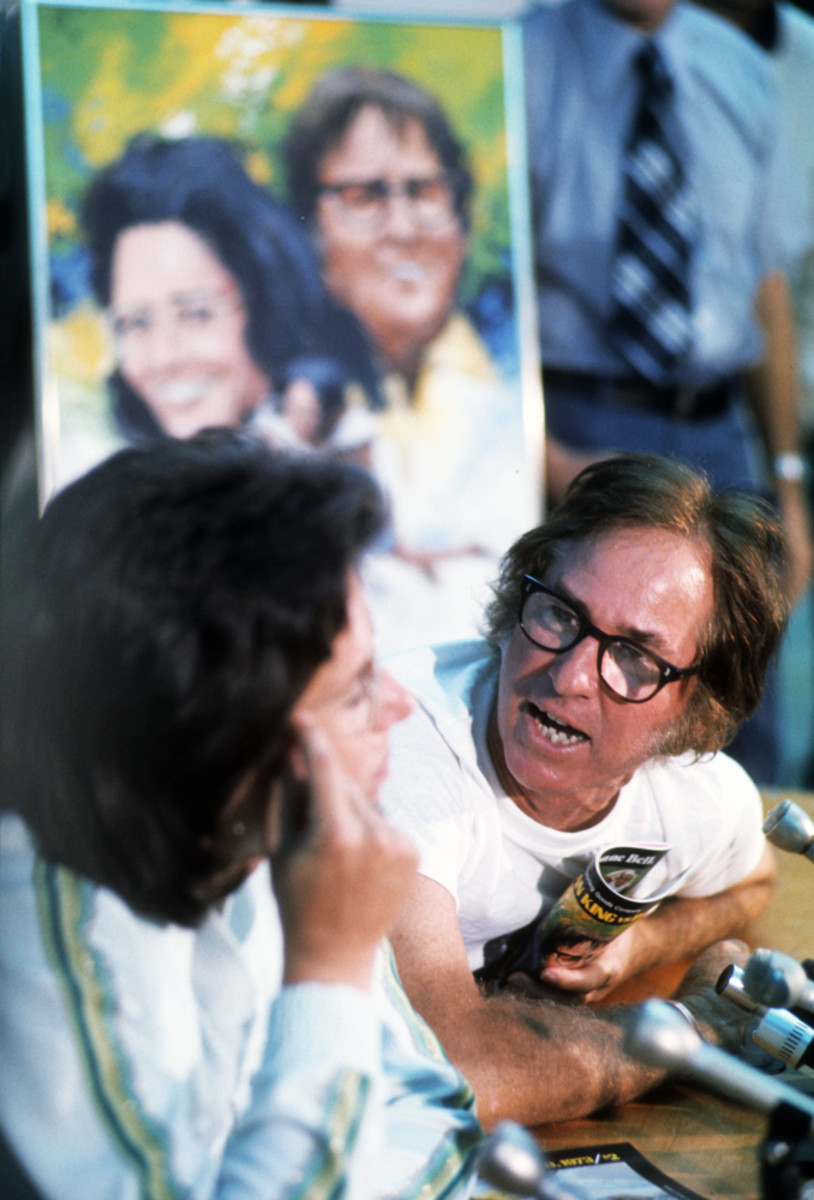
Billie Jean King
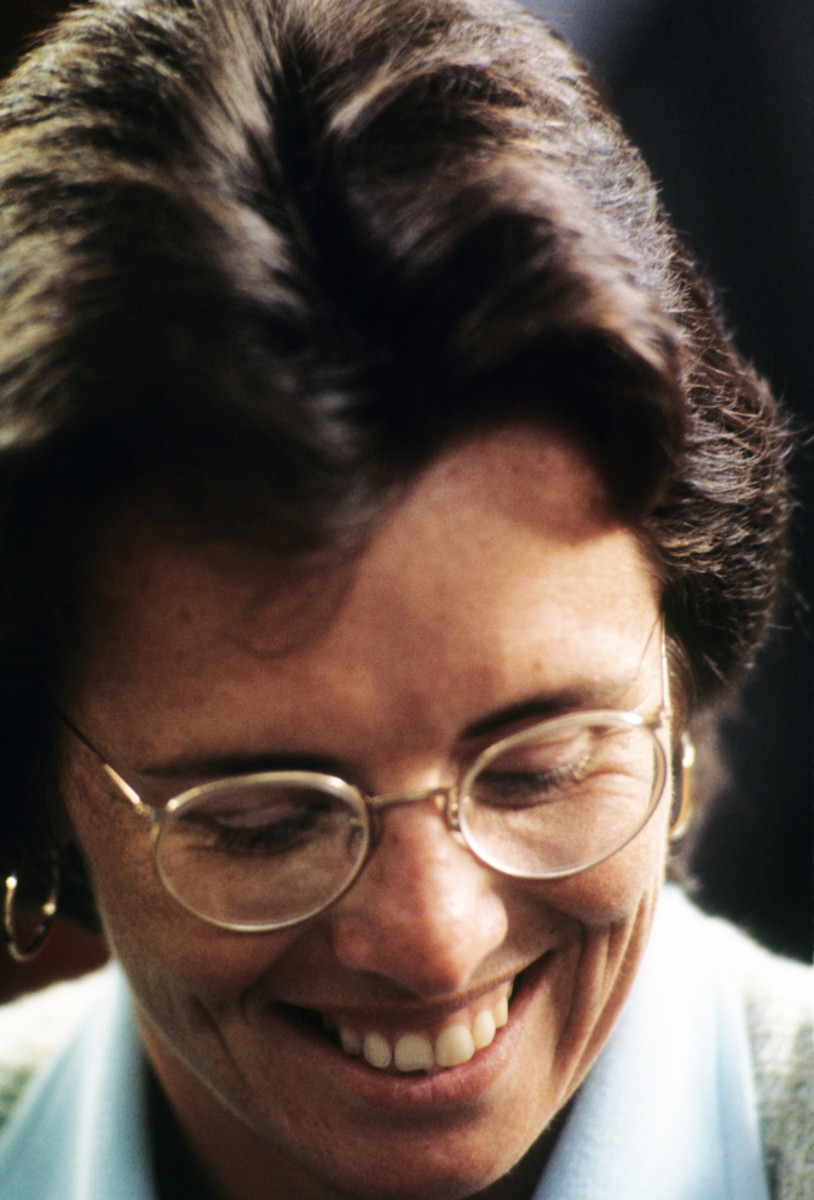
Astrodome Area

Bobby Riggs
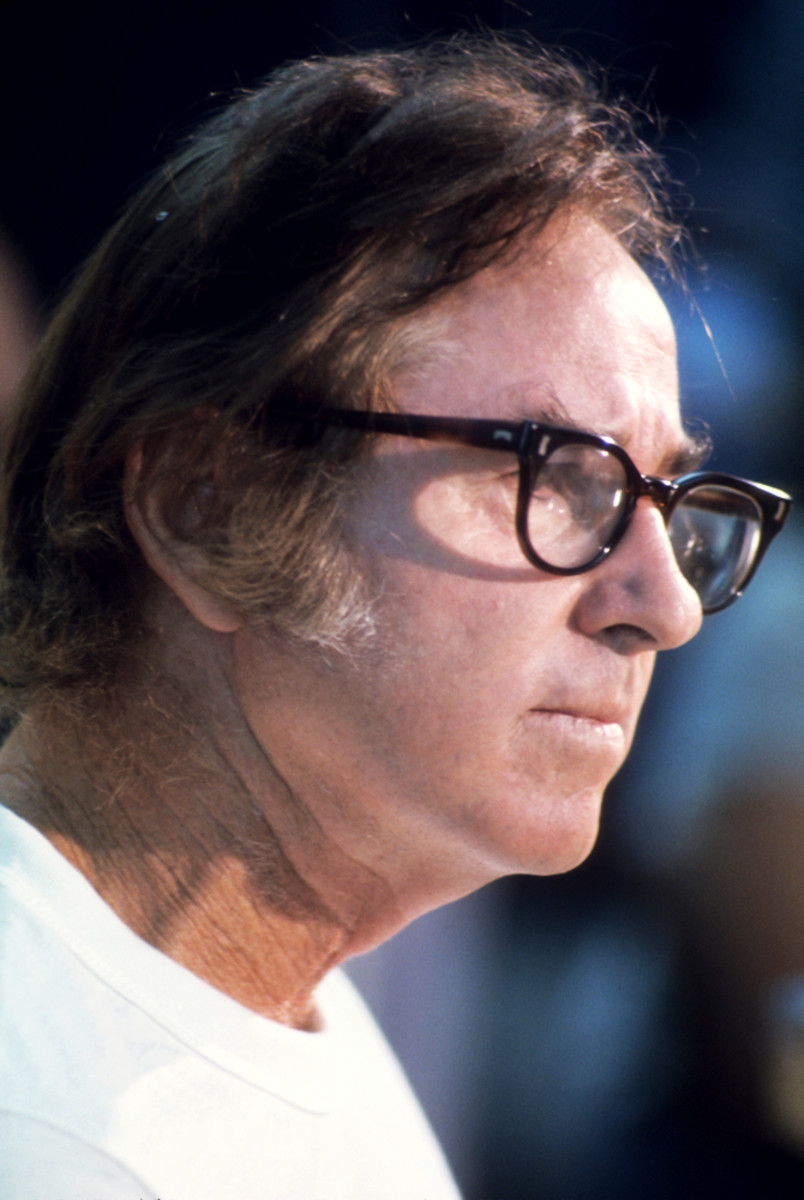
Bobby Riggs and Howard Cosell
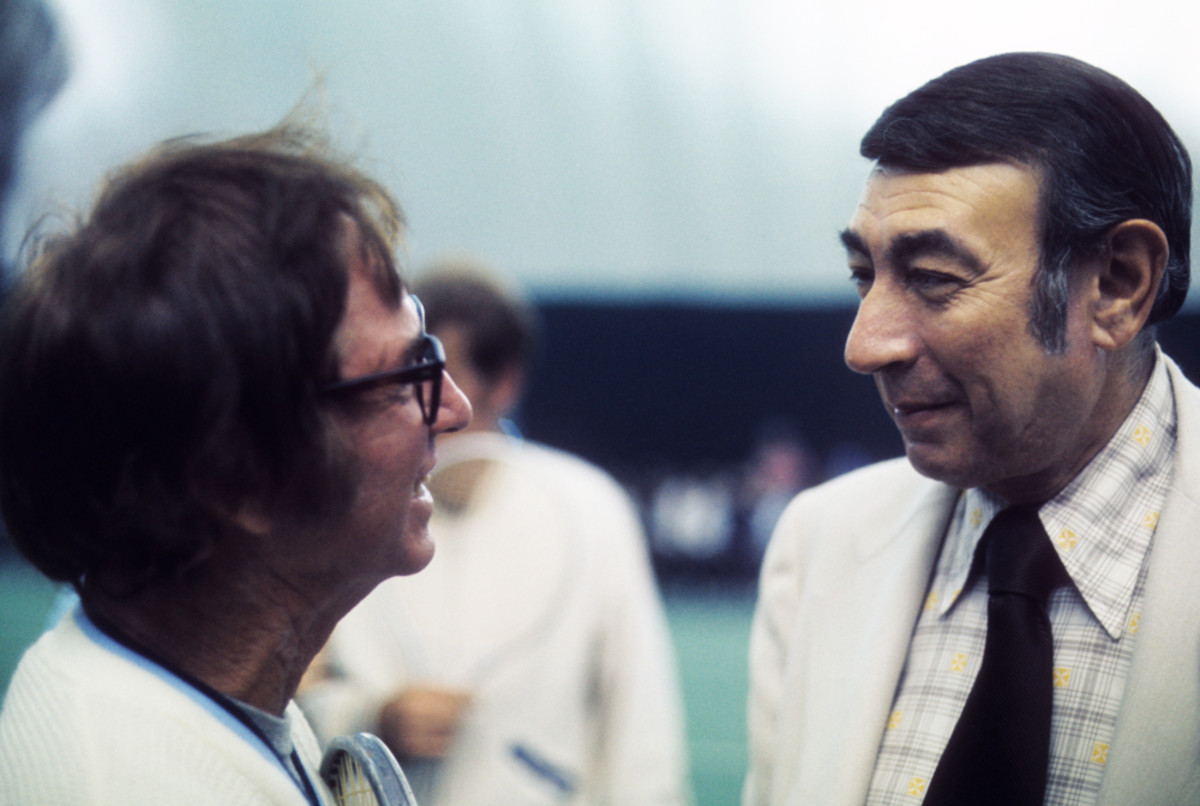
Bobby Riggs
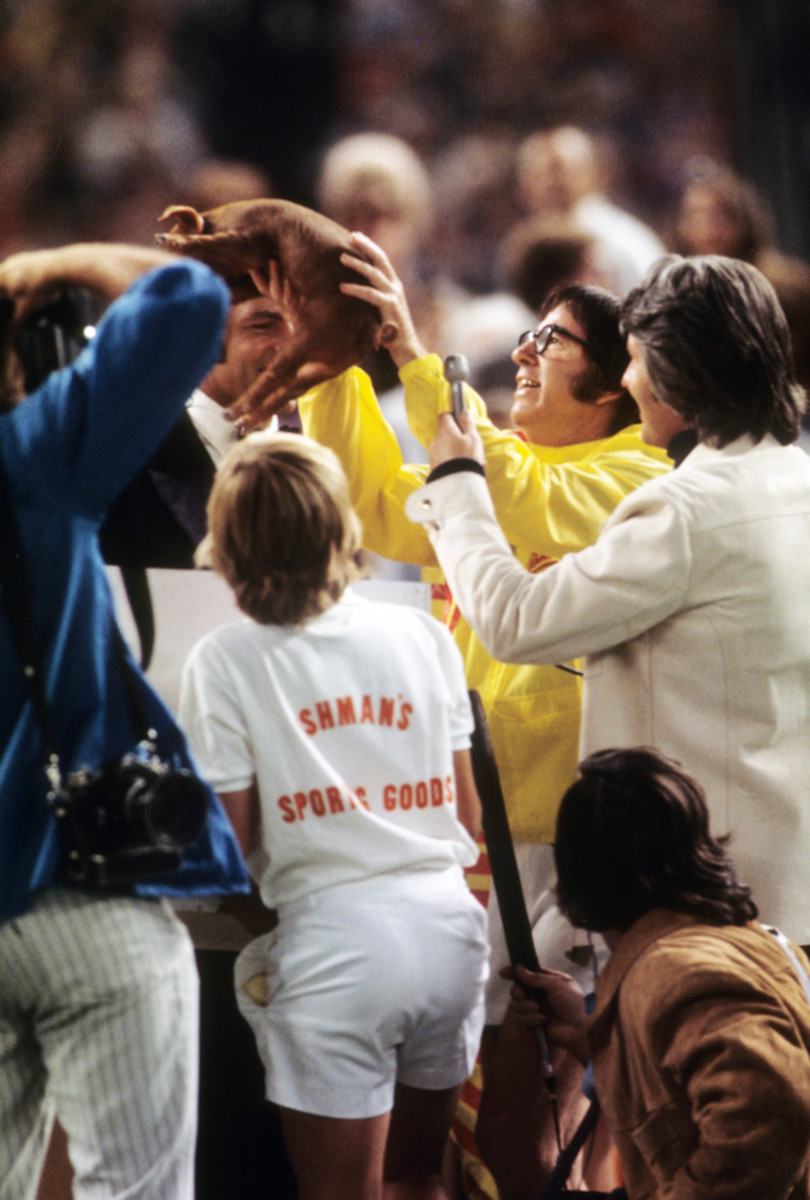
Billie Jean King
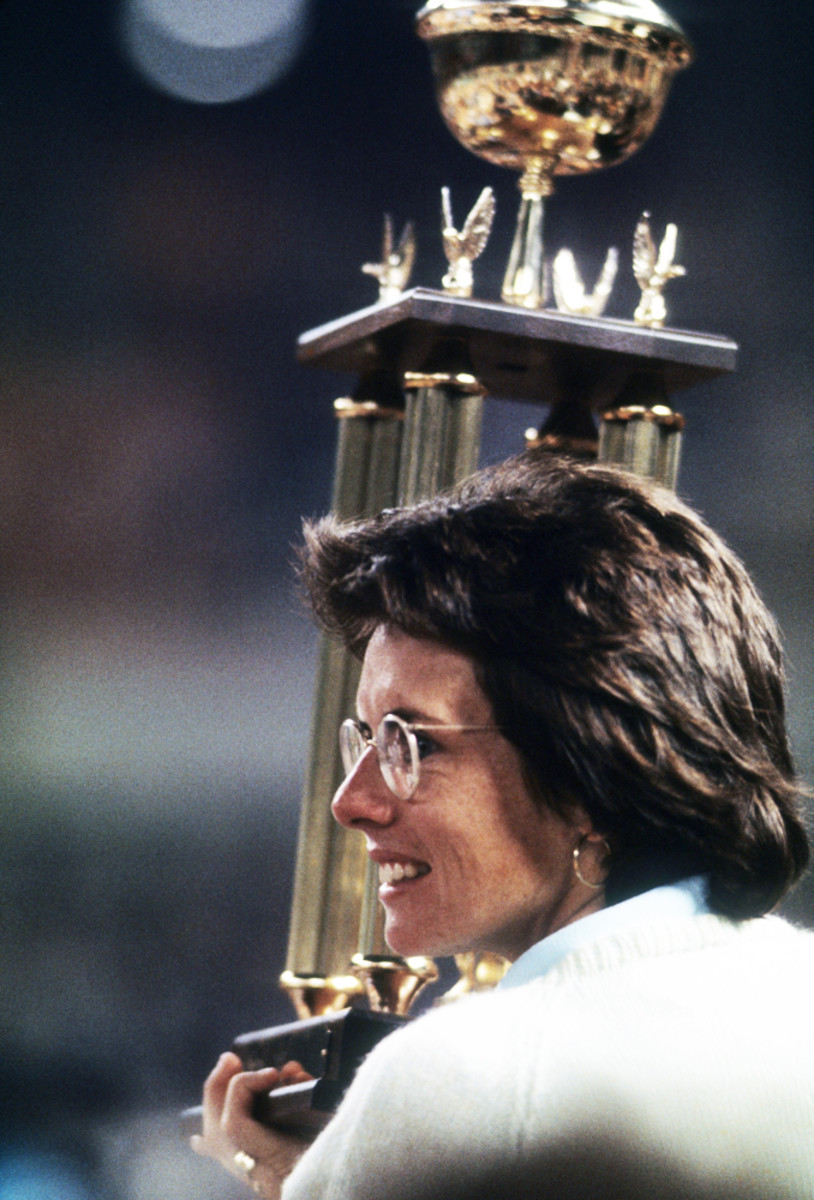
Bobby Riggs
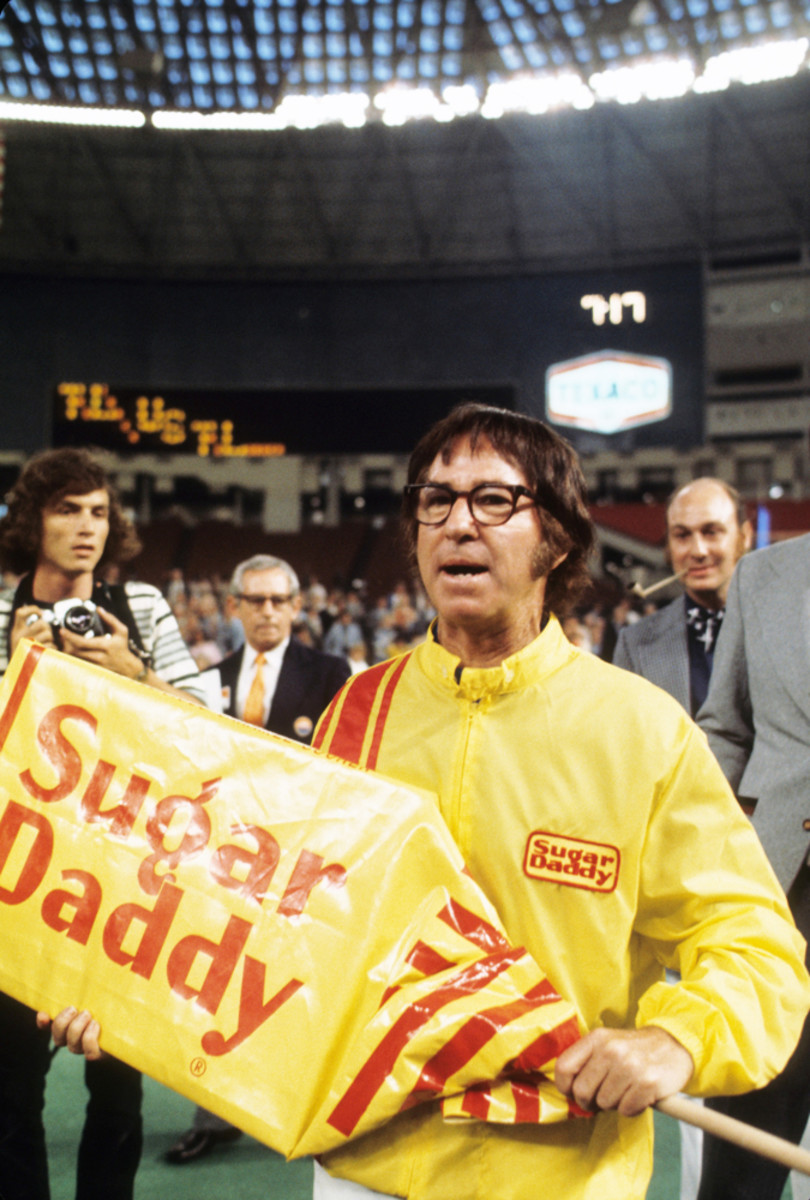
Billie Jean King
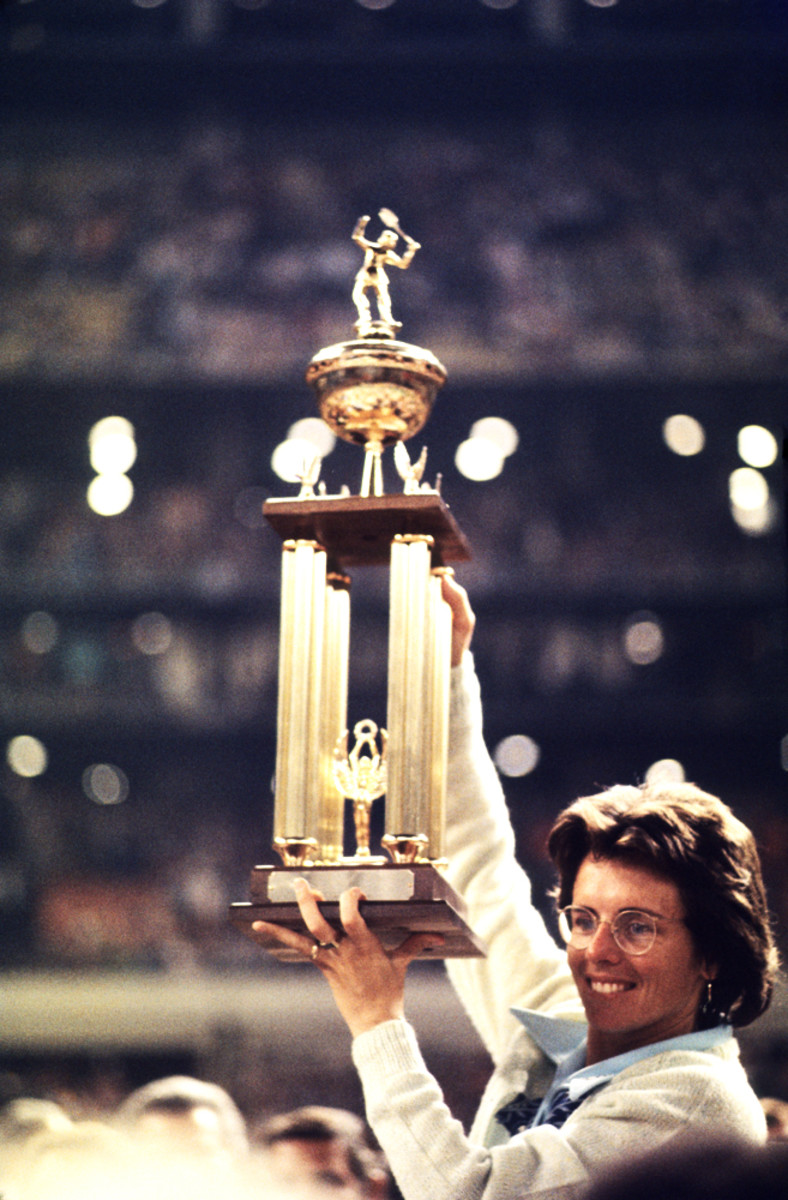
Cheerleaders
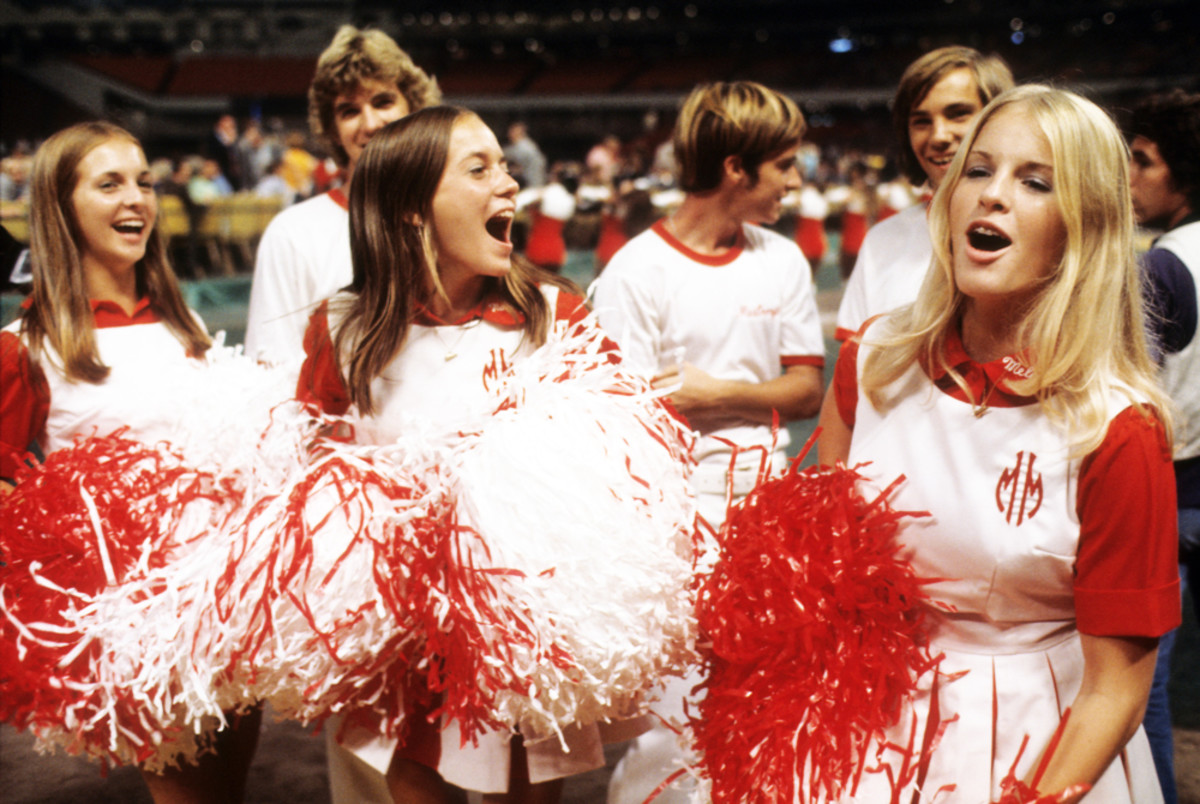
Bobby Riggs
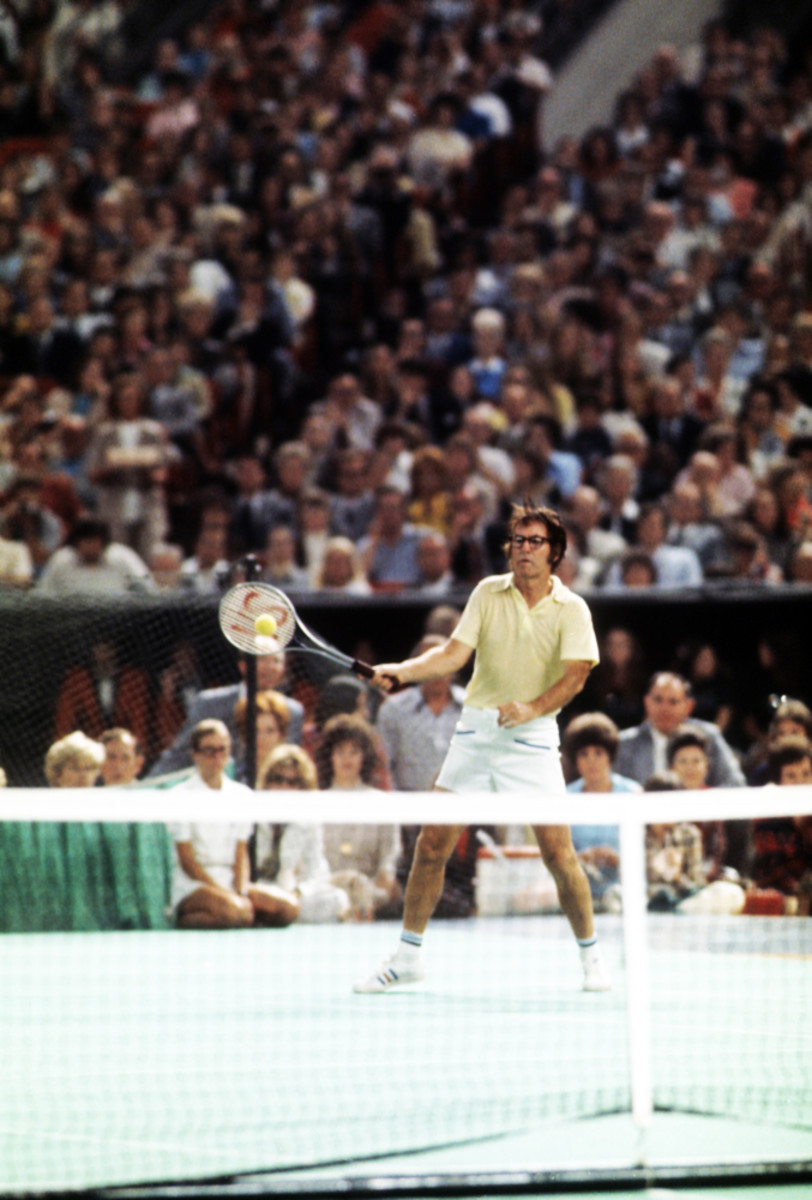
Billie Jean King
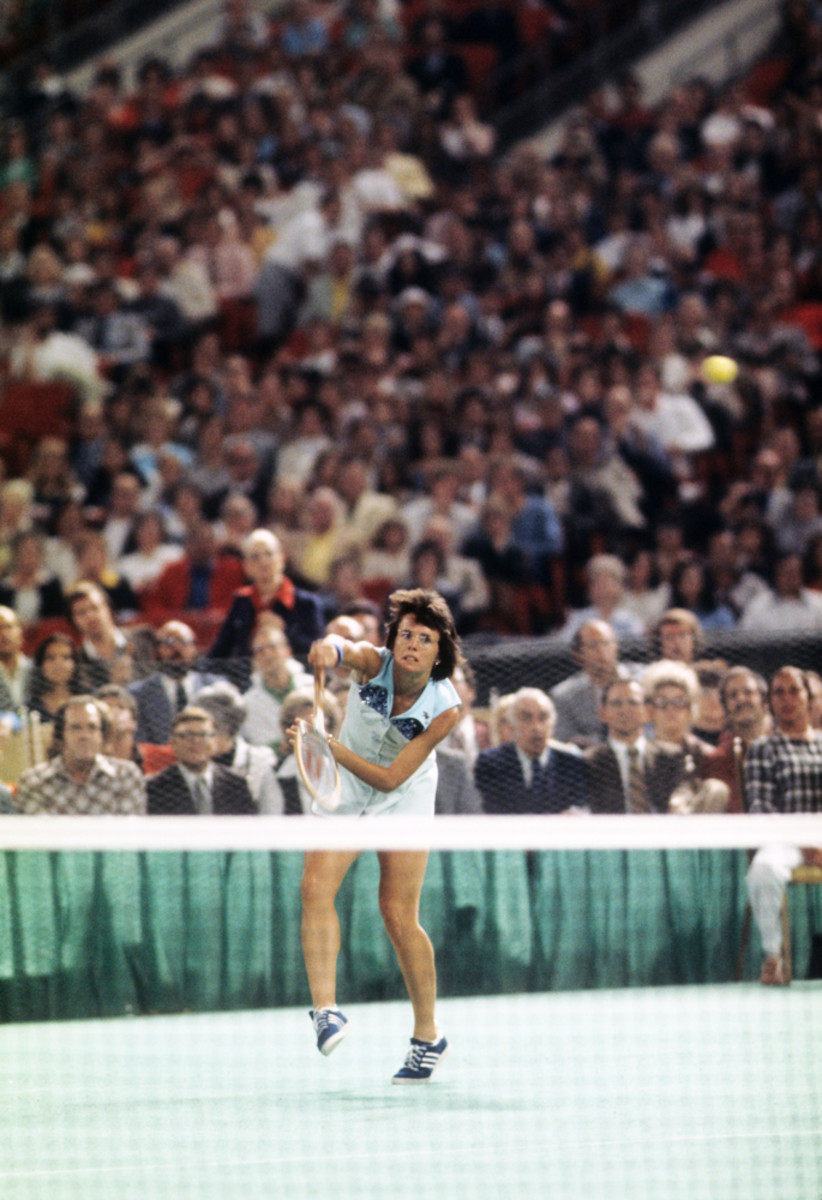
Glen Campbell and George Foreman
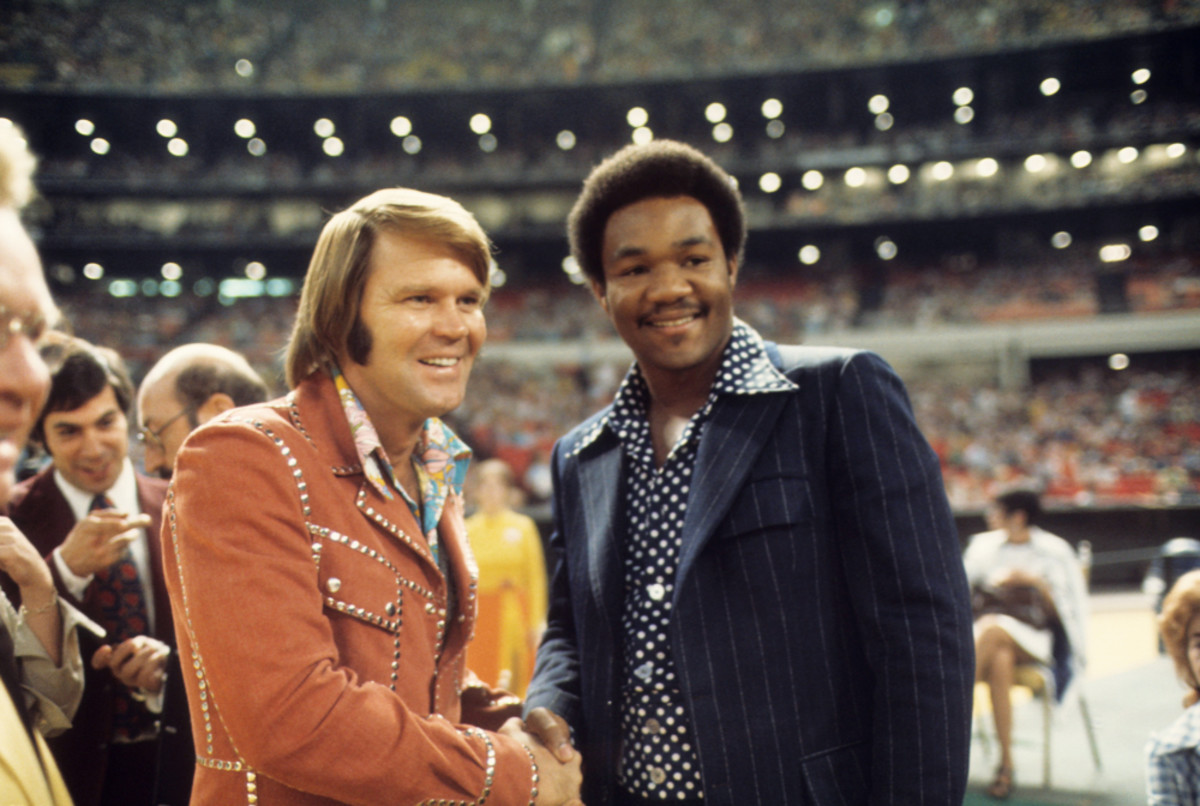
Mascots
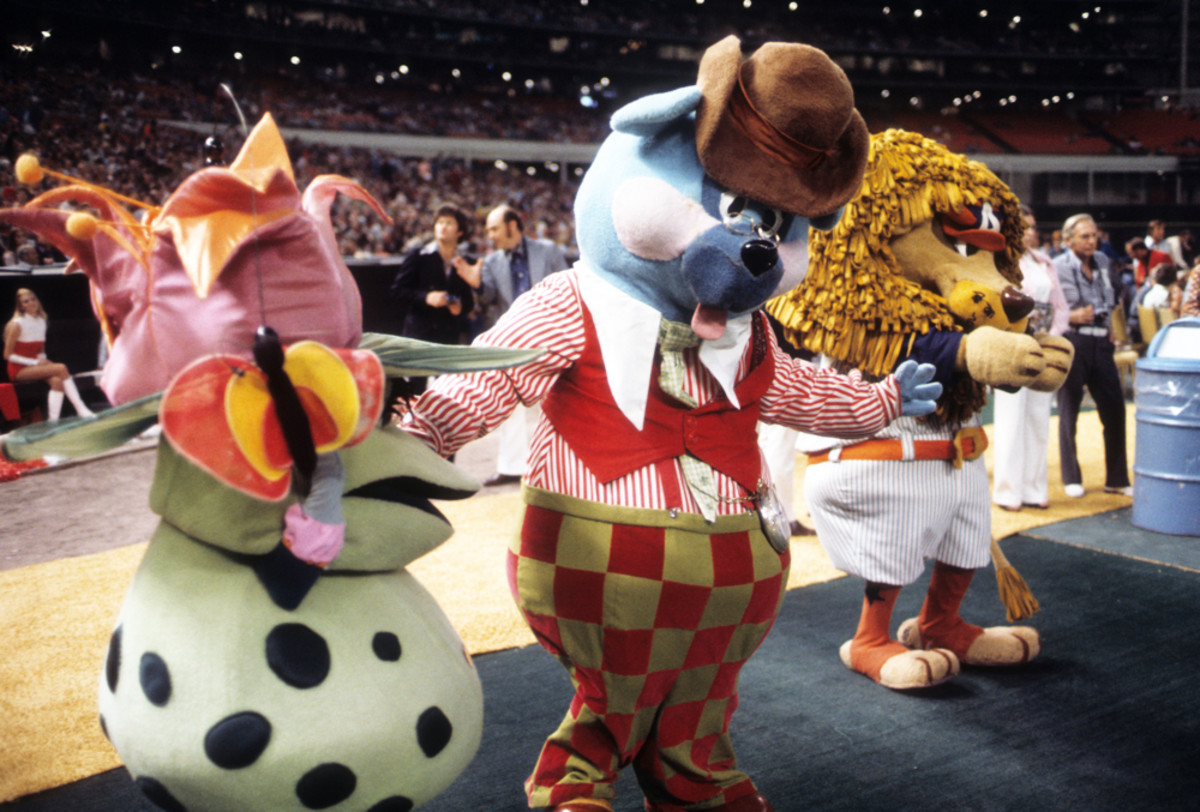
George Foreman and Jim Brown
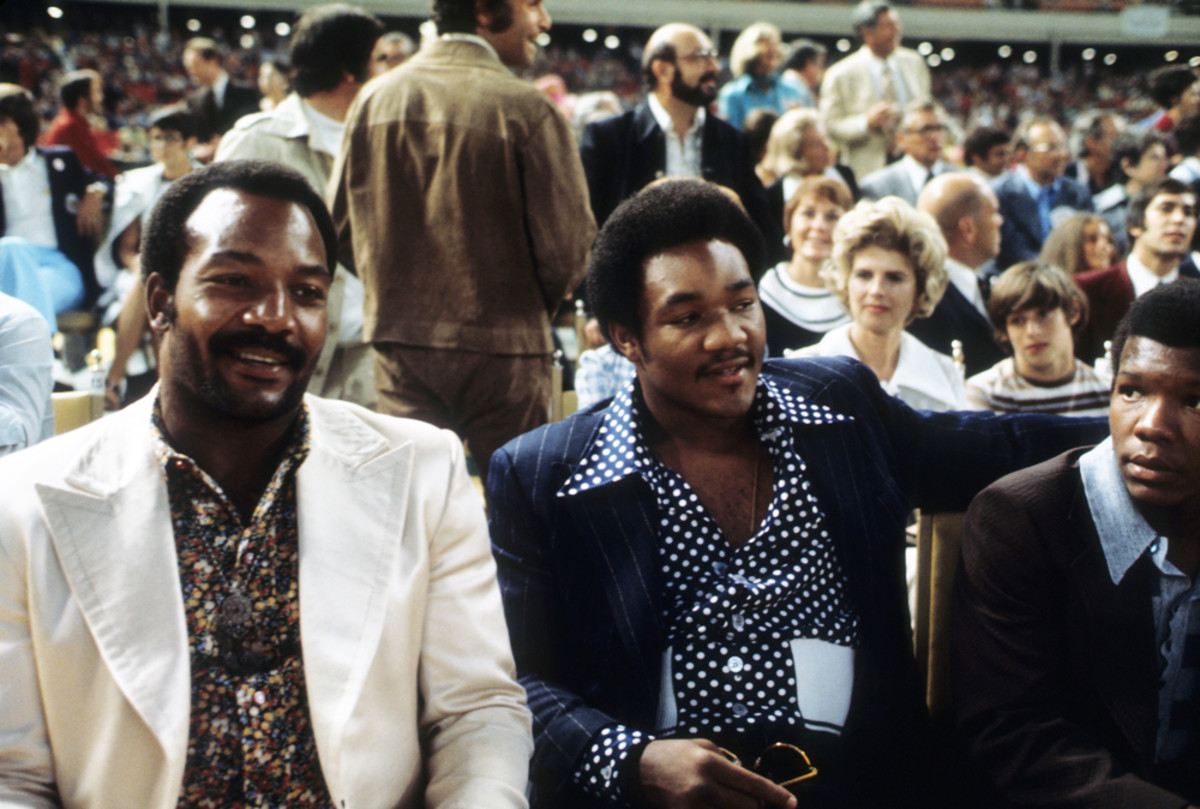
Bobby Riggs
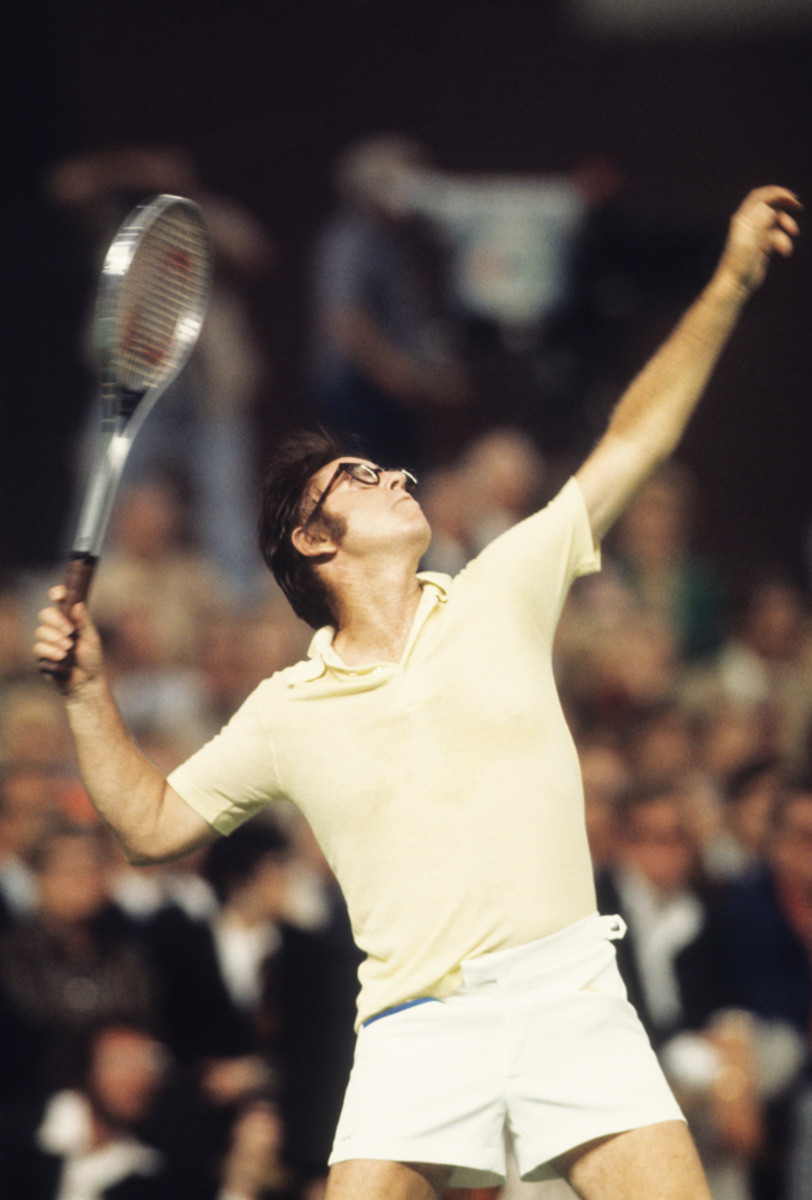
Billie Jean King
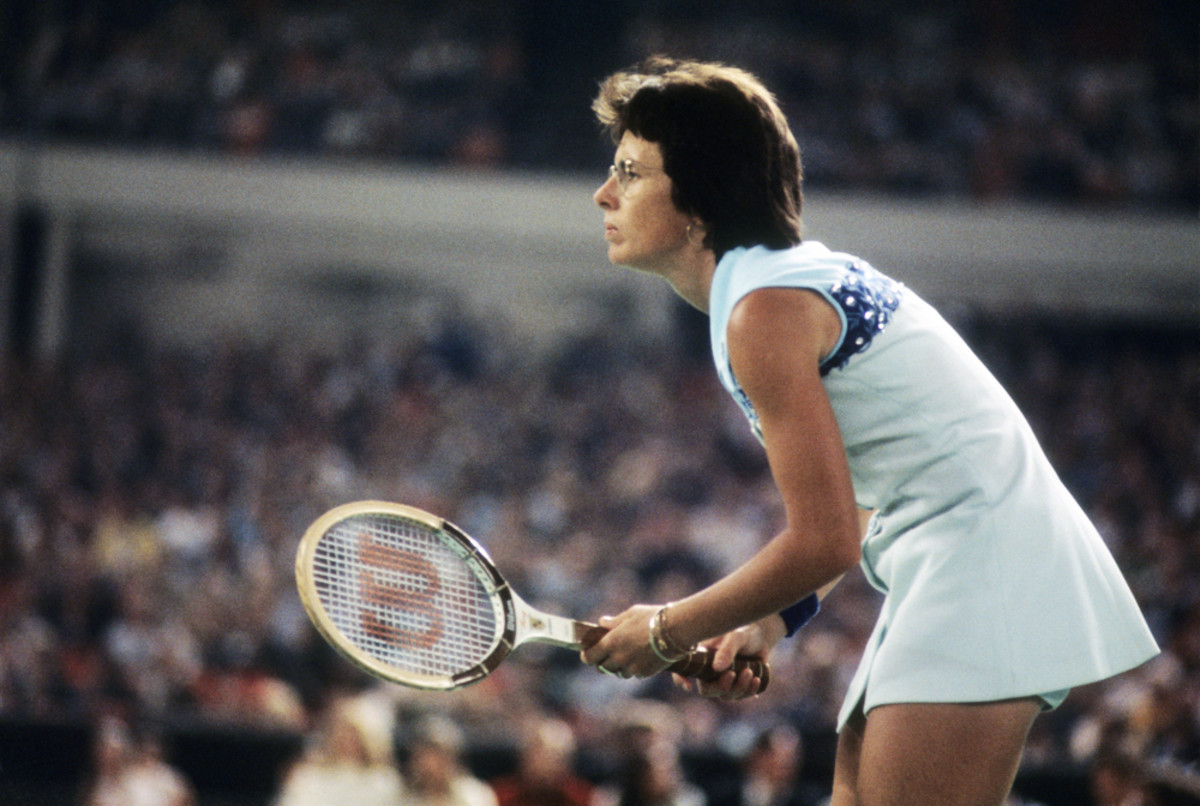
Billie Jean King and Bobby Riggs
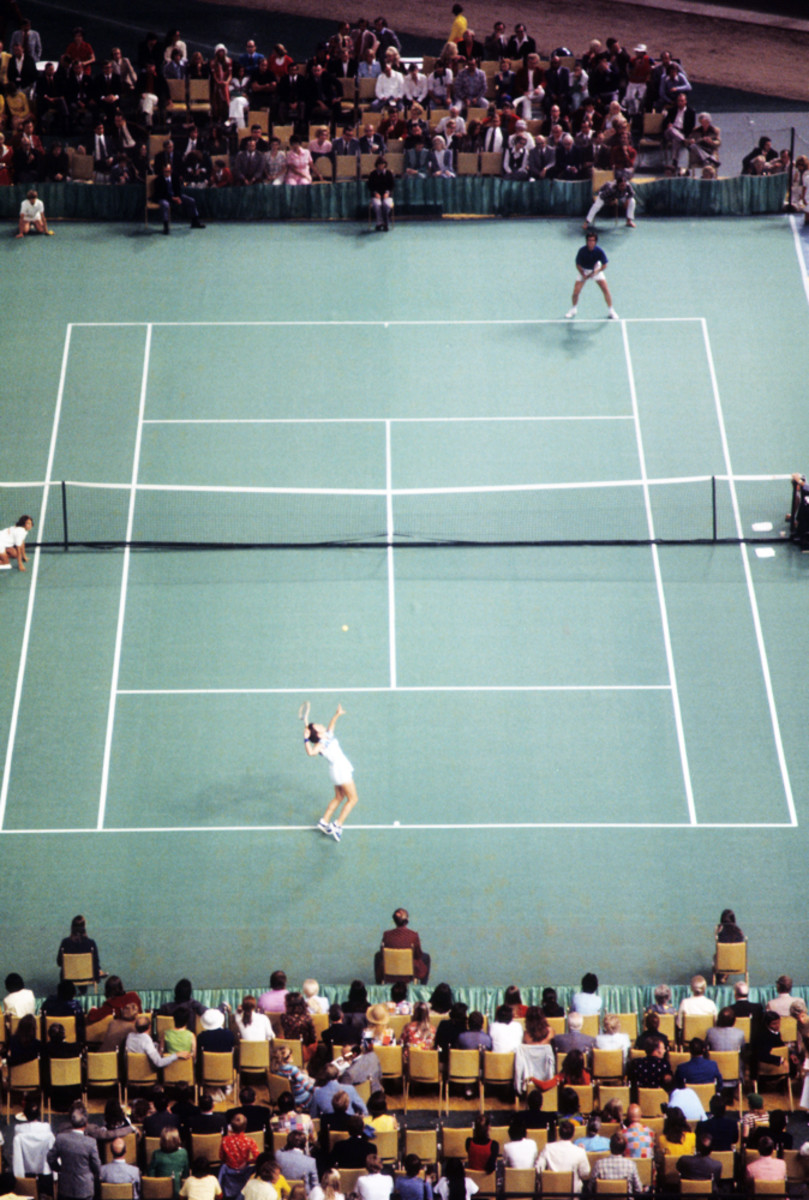
Bobby Riggs
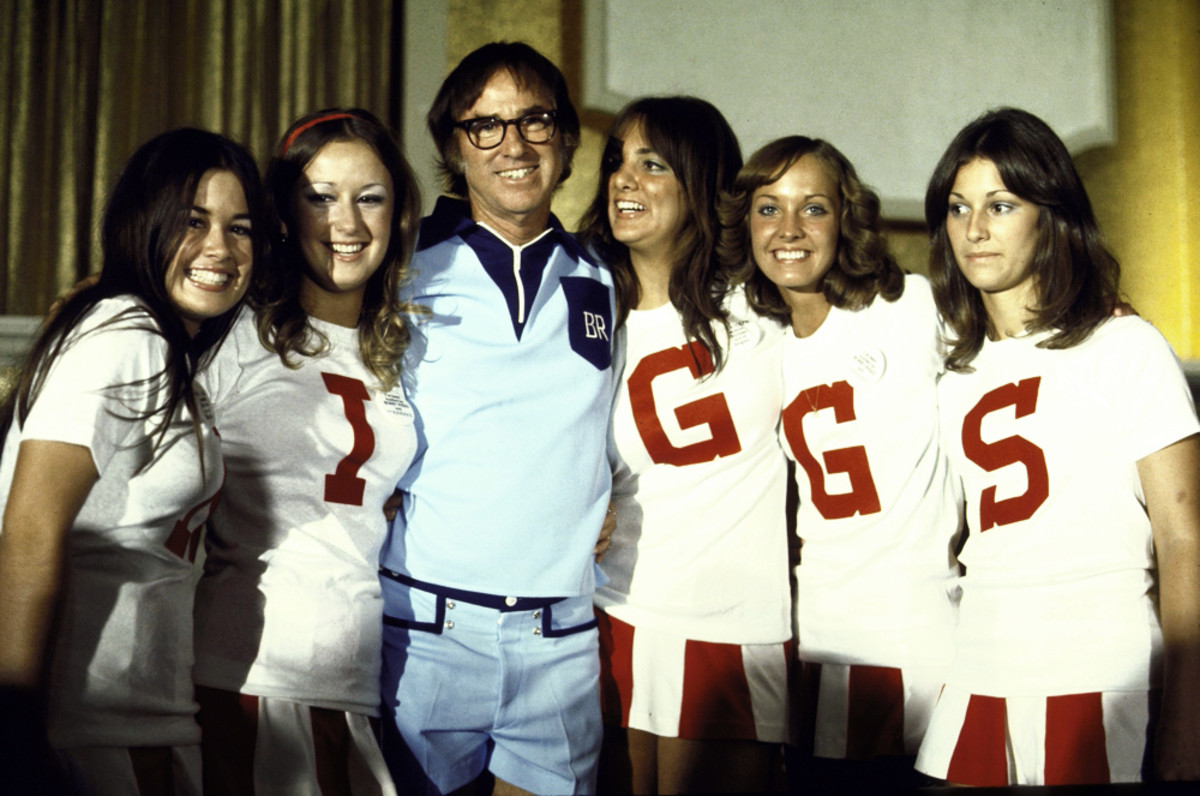
Bobby Riggs
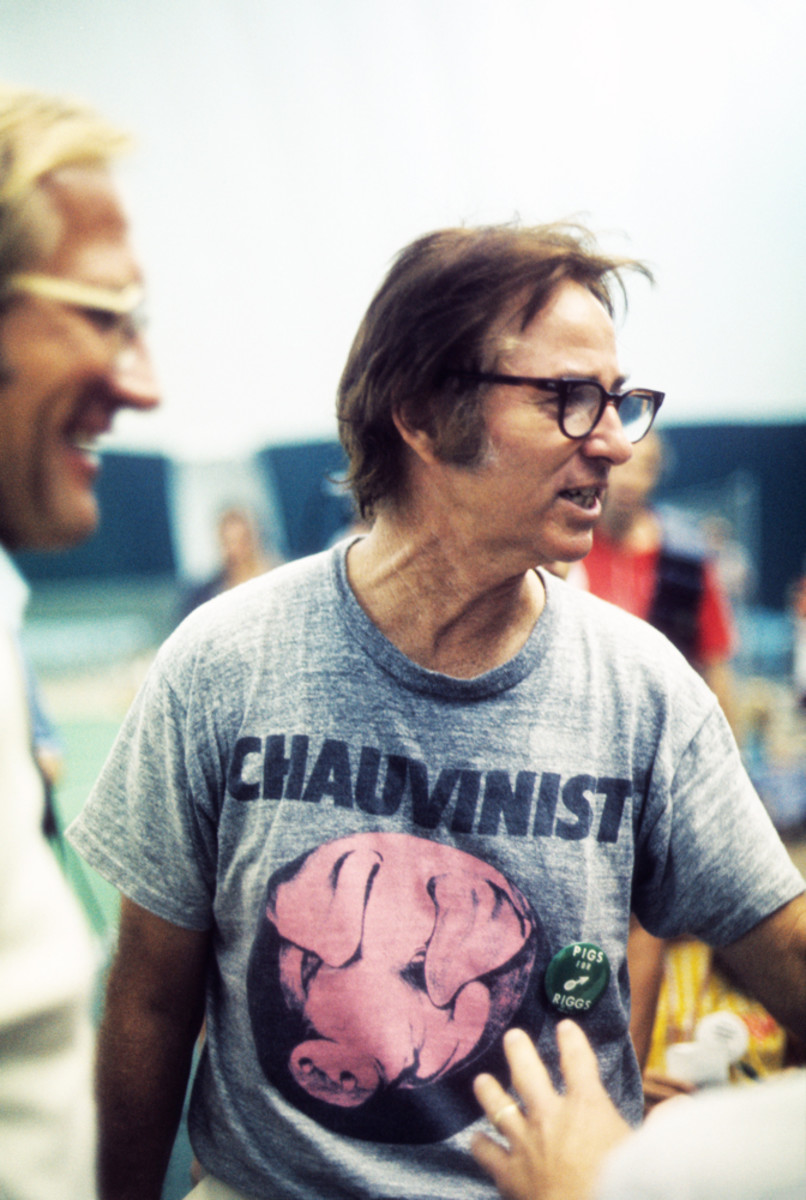
Billie Jean King
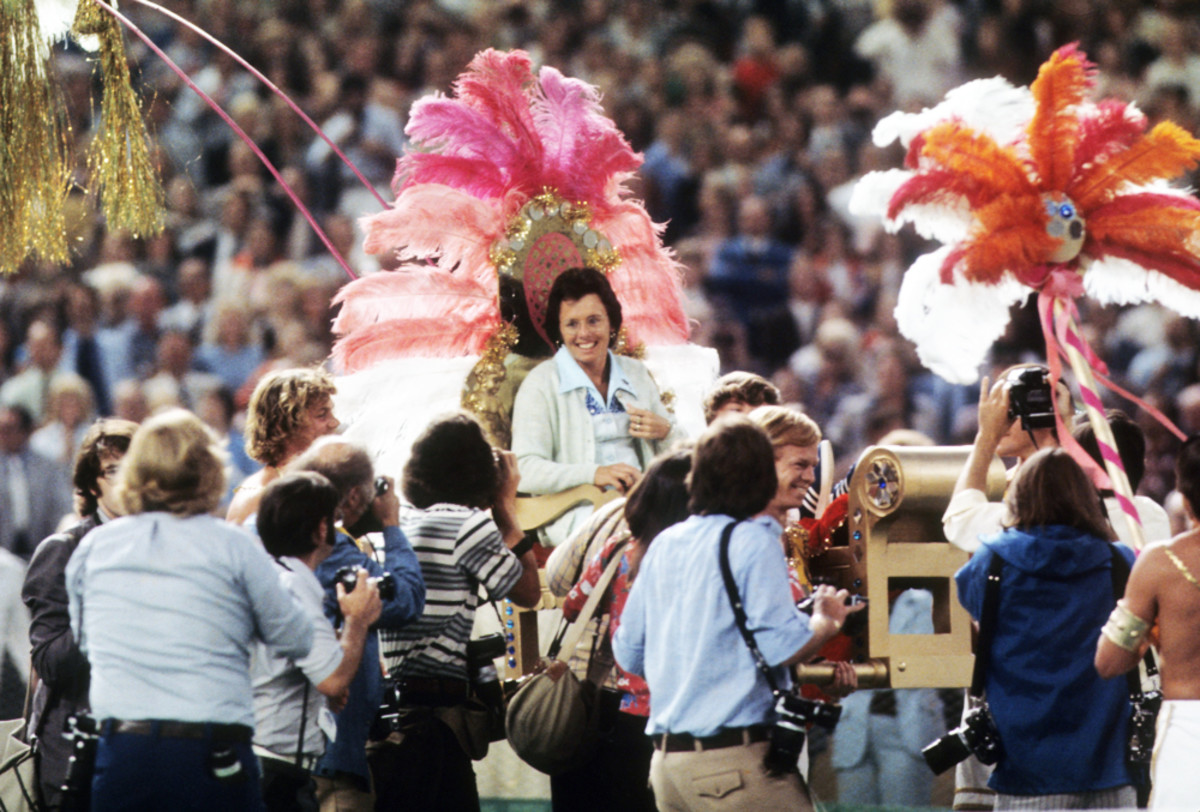
Fan
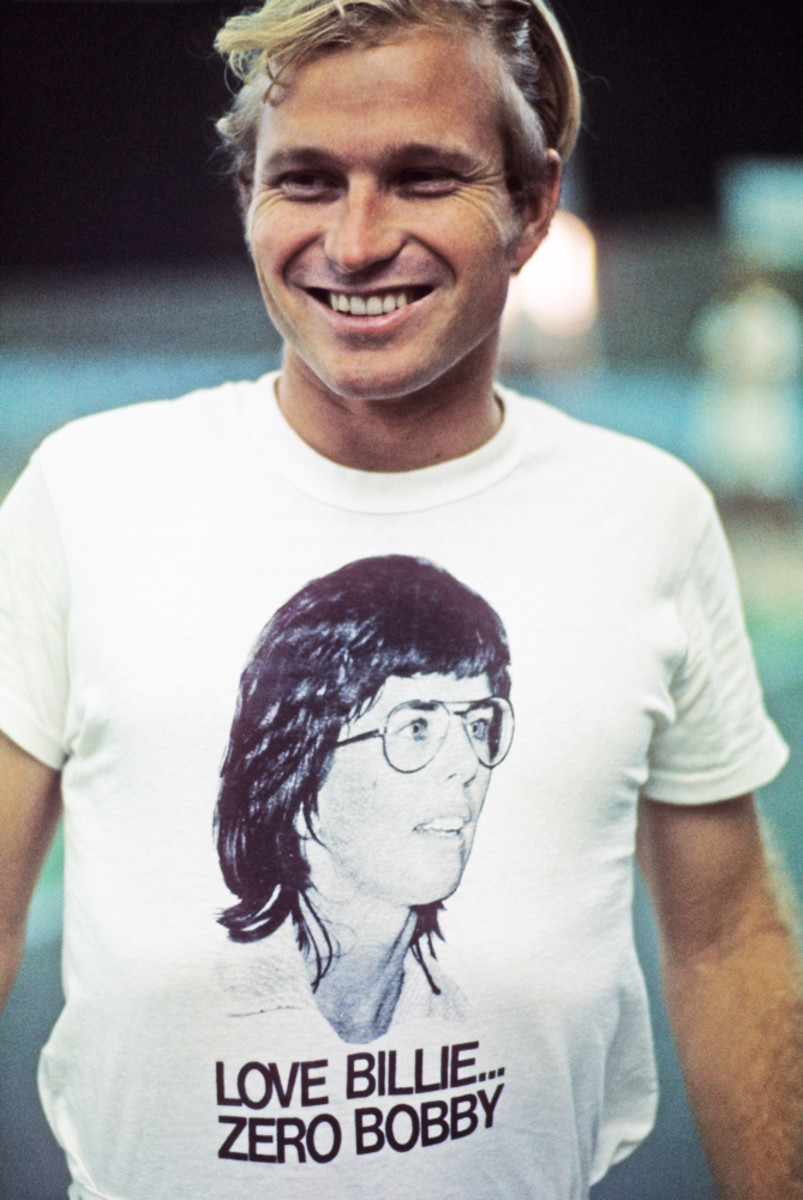
SI: Emma, some of your colleagues have talked about equal pay in Hollywood. Did that have resonance for you while you shot this?
ES: Of course. Discussing the Battle of the Sexes, the beginning of the WTA, it's incredible telling a story that takes place 44 years ago. A lot has changed, clearly: prize money and all that. But a lot hasn't, too, across our nation. We still have so far to go.
SI: It was hard to watch this movie, I thought, and not see this through the prism of today's political climate.
BJK: Yes.
SI: I suspect you were shooting this when it was still possible our next president would be a woman.
BJK: There are so many battles that have to be won again and again. Coretta Scott King talked about how freedom is never really won, how every generation has to earn it and win it again and again. It's the same with equality. I think we're right in the middle again. It's up to the ones Emma's age and younger—they have to keep doing this.
ES: It's the right thing to do. It's not just about you, it's about everyone. We have to teach our children respect for each other and to get rid of bullying. Semantics are powerful. Be kind. Be good. I know it sounds goody two-shoes, but it really works.
SI: Billie has a wealth of stories, but I imagine you also want to put forth your interpretation of this role.
ES: It did quickly need to become [a matter of] capturing the essence rather than a type of impression. It was important, the physicality and obviously her voice were very important because they're definitive. But in terms of her spirit, I was only able to get the essence because, again, you can't live up to Billie Jean King.
BJK: You know, when people ask me about the movie, they say, What do you think? And Emma just used the word essence. I would say they captured the essence. That's all I would ask for. It's a movie.
SI: We're distinguishing this from a documentary.
BJK: People keep thinking, What if it isn't accurate? Forget that. Did you capture the essence of the moment and the people? They did.
Serena Williams Writes Emotional Letter to Her ‘Role Model’ Mother
SI: The love story in the film between you and Marilyn [Barnett, then King's hairdresser] isn't something I had heard in that detail. Were you comfortable with that?
BJK: No, I'm not comfortable. I'm not comfortable in the movie at all. I'm not comfortable, period. I'm very uncomfortable. I'm full of pain. I'm full of joy. I'm full of "Did it come out the way I wanted?"
SI: What is your answer?
BJK: It's horrible to watch.
SI: Why do you say that?
BJK: It's just difficult. It brings back all these memories. It's tough stuff. We're still not winning. LGBTQ, we're not there yet.
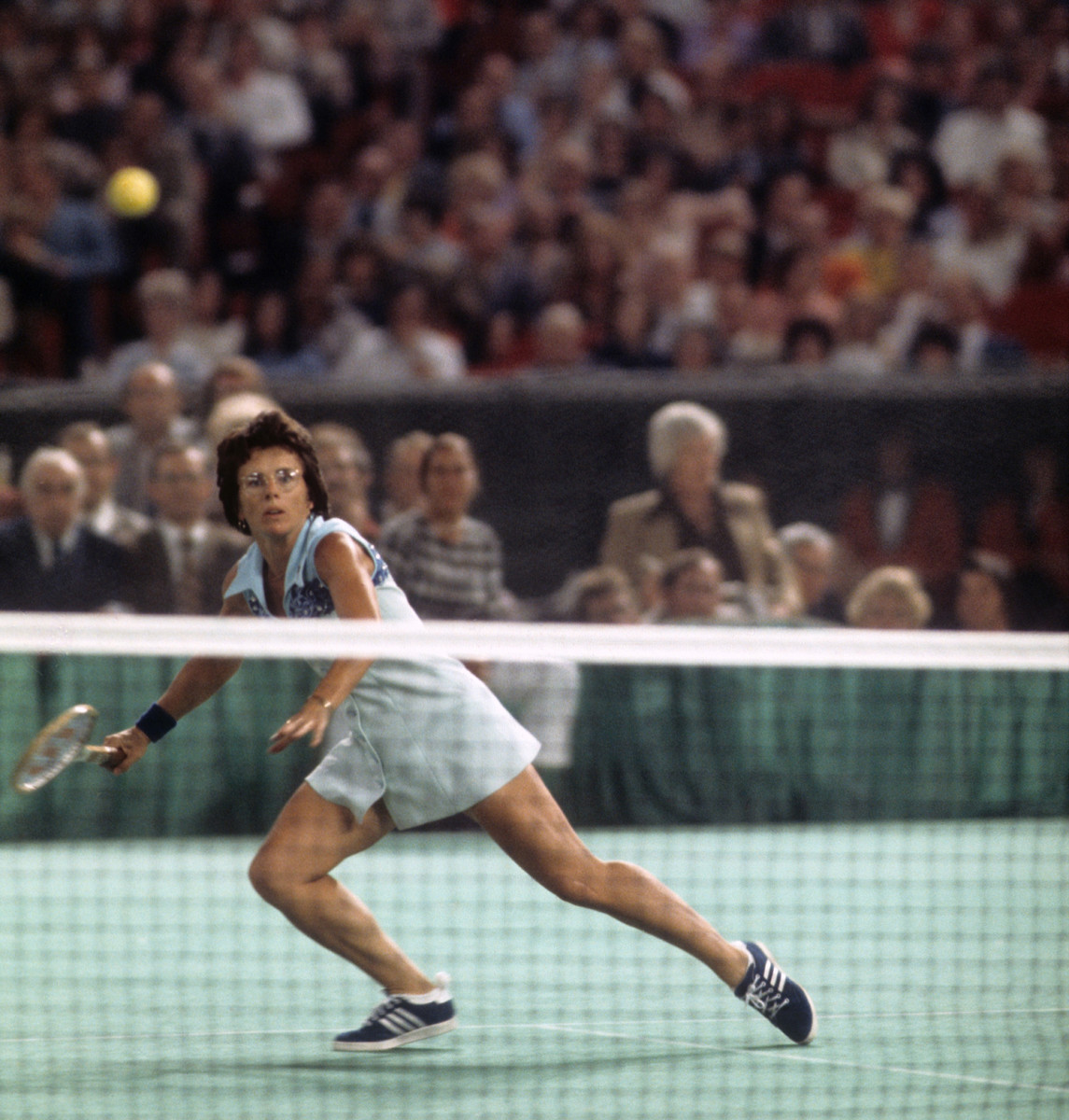
SI: I kept thinking, holy hell, if you lost that match for some reason—
BJK: I thought about that the whole time..... Is it exactly accurate chronologically? No, but it's a sliver of time, getting the essence of it. You're the actor: What do you think it's supposed to be?
ES: One of the great things about this was the idea that you can be figuring out who you are. You can be doing things you think you shouldn't be doing, being so worried, losing when you think you should be winning, all these different things. You can still effect change in the world. You do not have to be perfect to be great. That is what's so inspiring to me about Billie Jean in this period, struggling through that. You can speak for what you know is right and true. You don't have to have it all figured out to still do great things.
SI [To King]: Does Emma know the answer to my favorite trivia question: What famous boxer was on the security detail the night of the match?
BJK: Oh, yeah.
SI: There were two guys there: George Foreman.
ES: I did know that.
BJK: And Jim Brown. They were sitting together.
SI: Jim said Bobby would win. George said Billie would win.
BJK: George ended up being my security guard at the end.
SI: So the wheels of change turn slowly, but they do change. Fair?
ES: Fair.
BJK: Battle of the Sexes is just another reminder we have a long way to go still.
